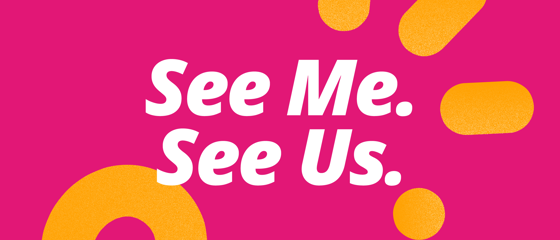
Understanding Mental Health Stigma and Discrimination
Mental health problems can be hard for anyone to cope with but it can be made worse by having to deal with stigma and discrimination from others.
People told us they most commonly experience stigma and discrimination from the people closest to them, like friends, family and work colleagues.
Asking for help is not easy either – the place where people experience stigma and discrimination most often is in GP practices.
“It makes me feel sad that after all the effort I have put into educating friends and family, people in the public/medical or peer groups can still think this way and have these stigmas laced within their reactions and discussions.” – See Me volunteer
We also know that 44% of people in Scotland have witnessed someone experiencing stigma or discrimination because of a mental health problem.
To be able to tackle stigma and discrimination, we need to know what it is, and what it can look like.
Stigma
“The negative attitudes or beliefs based on a preconception, misunderstanding or fear of mental health”
An example might be someone incorrectly thinking that all people with mental health problems are dangerous because they have seen it in a film or in the news.
Discrimination
“When a person performs an action, whether intentional or unintentional, that creates barriers and inequality for people with lived experience of mental health problems.”
An example of this is not inviting someone for a job interview based on disclosure of a mental health problem.
Types of stigma
Self Stigma
Self-stigma is the judgement people put on themselves, which has often come from hearing and seeing external stigma and discrimination.
It can lead people into believing that they aren't capable of things such as getting a job, or going into further education. This can result in them withdrawing, feeling frustrated, angry, experience low self-esteem and lack of confidence in their future. As a result many are at risk of defeating their own personal goals and ambitions.
Read about Bridget's experiences with self-stigma
Stigma by association
Someone connected to people with mental health problems, e.g. family member or friend who experience stigma as a result of this association.
Structural stigma
When the rules, policies, and practices of social institutions restrict the rights of, and opportunities for, people with mental health problems.
This could be a policy at work which automatically puts people with mental health problems at a disadvantage due to the wording or terms.
Public stigma
Public stigma, which is sometimes known as prejudice, is when people form an opinion before becoming aware of and understanding the relevant facts.
Prejudice can also stir up emotional responses such as fear or anger towards the people who are being stigmatised. These judgemental preconceptions endorse negative stereotypes which can have a major impact on someone who experiences mental health problems. These attitudes can have a major impact on people's lives - making them feel bad about themselves.
 Join See Us
Join See Us

Anyone can help tackle stigma and discrimination. You can do as little or as much as you're able to and every action makes a difference.
Find Out More